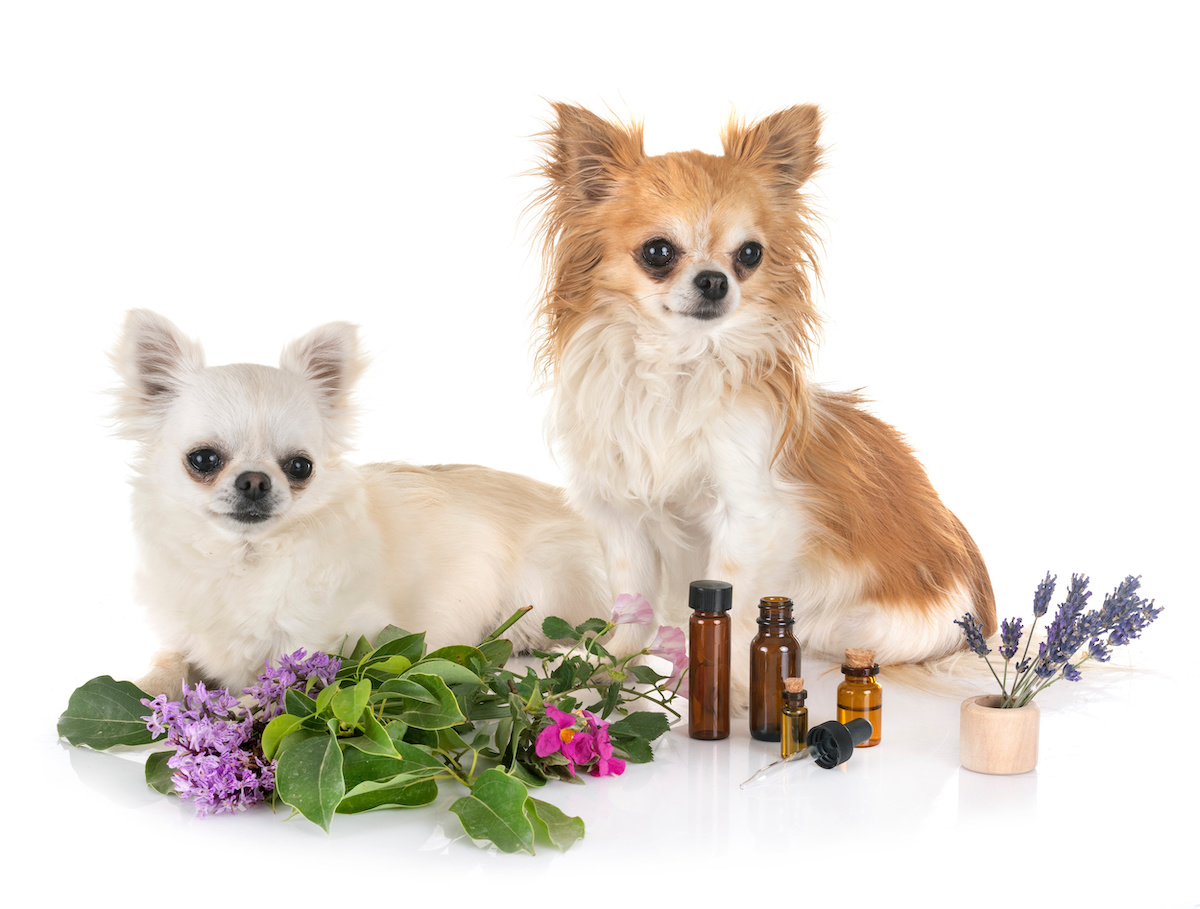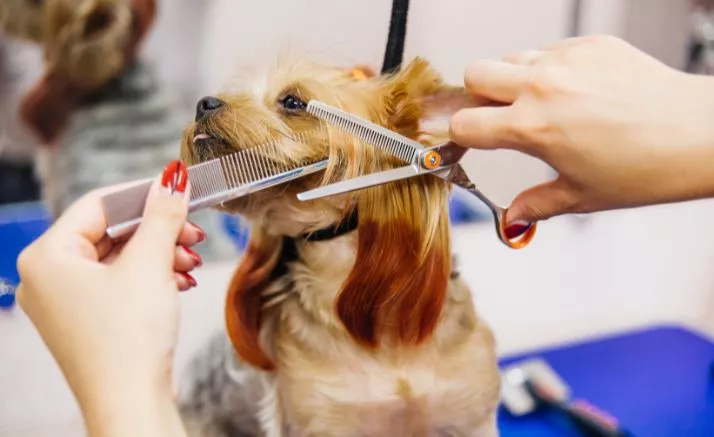DIY Natural Pet Care: Holistic Approaches to Animal Wellness
In a world where natural living and holistic wellness are becoming increasingly popular, it's no surprise that pet owners are seeking alternative ways to care for their furry companions. DIY natural pet care offers a hands-on approach to animal wellness, allowing pet parents to take an active role in their pets' health while avoiding harmful chemicals and synthetic products. This journey into the world of holistic pet care is not just about feeding organic food or using natural remedies; it's about understanding and nurturing the whole animal—mind, body, and spirit.
Understanding DIY Natural Pet Care
DIY natural pet care is a philosophy that emphasizes the use of natural, non-toxic ingredients and methods to support and enhance the well-being of pets. This approach is rooted in the belief that animals, like humans, thrive best when their care aligns with nature. It encompasses various aspects of pet care, including nutrition, grooming, healthcare, and emotional well-being.
One of the key principles of natural pet care is the idea that prevention is better than cure. By focusing on providing a balanced diet, minimizing exposure to toxins, and using natural remedies, pet owners can help prevent many common health issues before they arise. This approach is not only more sustainable but also helps to foster a deeper bond between pet and owner.
The Relevance of Holistic Approaches in Pet Care
In recent years, there has been a growing awareness of the potential dangers associated with conventional pet care products. Many commercial pet foods, grooming products, and medications contain synthetic chemicals, preservatives, and additives that can have adverse effects on an animal's health. This has led to a rise in interest in holistic pet care, which seeks to minimize these risks by using natural alternatives.
Holistic pet care is not just a trend; it's a movement that reflects a broader shift towards more mindful and responsible living. For many pet owners, the motivation to embrace natural pet care stems from a desire to provide the best possible life for their pets. This approach recognizes that animals are more than just their physical bodies—they have emotional and mental needs that must also be addressed.
Key Aspects of DIY Natural Pet Care
1. Nutrition: The Foundation of Health
Just as with humans, nutrition plays a crucial role in the health and well-being of pets. DIY natural pet care often starts with a focus on providing a balanced, species-appropriate diet. This might include homemade meals, raw feeding, or high-quality natural pet foods that are free from artificial ingredients.
Homemade Pet Food:
Creating your own pet food allows you to control exactly what goes into your pet's diet. You can choose organic, whole ingredients and tailor the diet to meet your pet's specific needs. For example, dogs may benefit from a diet rich in lean meats, vegetables, and grains, while cats, being obligate carnivores, require a diet high in animal protein.
Raw Feeding:
Raw feeding, also known as a BARF (Biologically Appropriate Raw Food) diet, is another popular option in natural pet care. This approach involves feeding pets raw meat, bones, and organs, along with some fruits and vegetables. Proponents of raw feeding believe it more closely mimics what animals would eat in the wild and can lead to improved digestion, healthier skin and coat, and better dental health.
Supplements and Superfoods:
Adding supplements and superfoods to your pet's diet can help boost their overall health. Omega-3 fatty acids, for instance, are excellent for maintaining healthy skin and joints, while probiotics support digestive health. Herbs like turmeric and spirulina are also popular for their anti-inflammatory and antioxidant properties.
2. Natural Remedies and Healthcare
When it comes to healthcare, many pet owners are turning to natural remedies as a first line of defence. From herbal supplements to essential oils, there are a variety of natural options that can help address common health issues.
Herbal Remedies:
Herbs have been used for centuries to support health and wellness, and they can be just as effective for pets. Chamomile, for instance, is known for its calming properties and can be used to soothe anxiety or digestive upset. Milk thistle is often used to support liver health, while echinacea can help boost the immune system.
Essential Oils:
While some essential oils can be harmful to pets if used incorrectly, others can offer significant benefits when used properly. Lavender oil, for example, is well-known for its calming effects and can be used to help reduce stress and anxiety in pets. Tea tree oil, when diluted, can be used as a natural antiseptic for minor cuts and scrapes.
Acupuncture and Chiropractic Care:
Holistic veterinary care often includes treatments like acupuncture and chiropractic care. These therapies can help manage pain, improve mobility, and support overall wellness, particularly in older pets or those with chronic conditions.
Homeopathy:
Homeopathic remedies are based on the principle of "like cures like" and use highly diluted substances to trigger the body's natural healing response. Some pet owners have found success using homoeopathy to treat conditions like allergies, anxiety, and even behavioural issues.
3. Grooming: Natural Products for a Healthy Coat
Grooming is an essential part of pet care, but many commercial grooming products contain harsh chemicals that can irritate the skin and coat. DIY natural pet care emphasizes the use of gentle, non-toxic products that are safe for pets and the environment.
Homemade Shampoos and Conditioners:
Making your own pet shampoos and conditioners is easier than you might think. A basic recipe might include ingredients like oatmeal, which soothes the skin; coconut oil, which moisturizes the coat; and essential oils like lavender or chamomile for their calming and antiseptic properties.
Natural Flea and Tick Prevention:
Instead of using chemical-based flea and tick treatments, many pet owners opt for natural alternatives. Diatomaceous earth, for example, is a natural powder that can be sprinkled on your pet's coat to kill fleas and ticks without harming the pet. Essential oil blends, such as those containing eucalyptus, cedarwood, and citronella, can also be effective in repelling pests.
Dental Care:
Dental health is often overlooked, but it's a crucial aspect of overall wellness. Natural dental care might include brushing your pet's teeth with homemade toothpaste made from coconut oil and baking soda or providing them with raw bones to help naturally clean their teeth.
4. Emotional and Mental Well-being
A holistic approach to pet care also recognizes the importance of addressing the emotional and mental well-being of pets. Just like humans, animals can experience stress, anxiety, and depression, and these emotions can have a significant impact on their health.
Environmental Enrichment:
Providing a stimulating environment is key to keeping pets mentally and emotionally healthy. This might include regular exercise, interactive toys, and opportunities for social interaction. For dogs, this could mean daily walks, playtime, and training sessions that challenge their minds. For cats, climbing trees, puzzle feeders, and plenty of vertical space to explore can help prevent boredom and anxiety.
Therapeutic Touch:
Massage and other forms of therapeutic touch can help reduce stress and promote relaxation in pets. Regular massage can also help improve circulation, ease muscle tension, and strengthen the bond between pet and owner.
Energy Healing:
Some pet owners explore energy healing modalities like Reiki to support their pet's emotional and physical well-being. Reiki is a form of energy healing that involves channelling energy to help balance the body and mind, and many believe it can be beneficial for pets with chronic illnesses or emotional trauma.
Real-Life Examples and Anecdotes
To bring these concepts to life, let's explore some real-life examples of pet owners who have successfully embraced DIY natural pet care.
Case Study: Bella's Journey to Health
Bella, a seven-year-old Labrador Retriever, struggled with chronic skin issues and digestive problems for most of her life. Despite multiple visits to the vet and various prescription medications, her condition never fully improved. Her owner, Sarah, decided to take a different approach and started researching natural remedies. She transitioned Bella to a homemade diet, rich in lean meats and vegetables, and began using herbal supplements like turmeric and milk thistle to support her skin and liver health. Within a few months, Bella's skin cleared up, and her energy levels improved dramatically. Sarah also incorporated regular acupuncture sessions, which helped alleviate Bella's joint pain and improved her mobility.
Case Study: Oliver the Anxious Cat
Oliver, a five-year-old Siamese cat, suffered from severe anxiety, especially during thunderstorms. His owner, Emily, had tried various calming products from the pet store, but nothing seemed to work. After consulting with a holistic veterinarian, Emily decided to try a combination of natural remedies, including chamomile tea, which she added to Oliver's drinking water, and a few drops of diluted lavender oil placed on his bedding. She also made environmental changes, providing Oliver with a cosy defence hiding spot and playing calming music during storms. Over time, Oliver's anxiety lessened, and he no longer exhibited the same level of distress during thunderstorms.
Conclusion: The Journey Ahead in DIY Natural Pet Care
The world of DIY natural pet care offers endless possibilities for those looking to take a more holistic approach to their pets' wellness. By focusing on natural nutrition, gentle grooming, preventive healthcare, and emotional well-being, pet owners can create a nurturing environment that supports the overall health and happiness of their animals.
As you embark on this journey, it's essential to do your research, consult with holistic veterinarians when needed, and always observe how your pet responds to new treatments or changes in their routine. The bond between pet and owner is a powerful one, and by taking a mindful, natural approach to care, you can strengthen that connection while promoting a healthier, happier life for your beloved companion.








Comments
Post a Comment